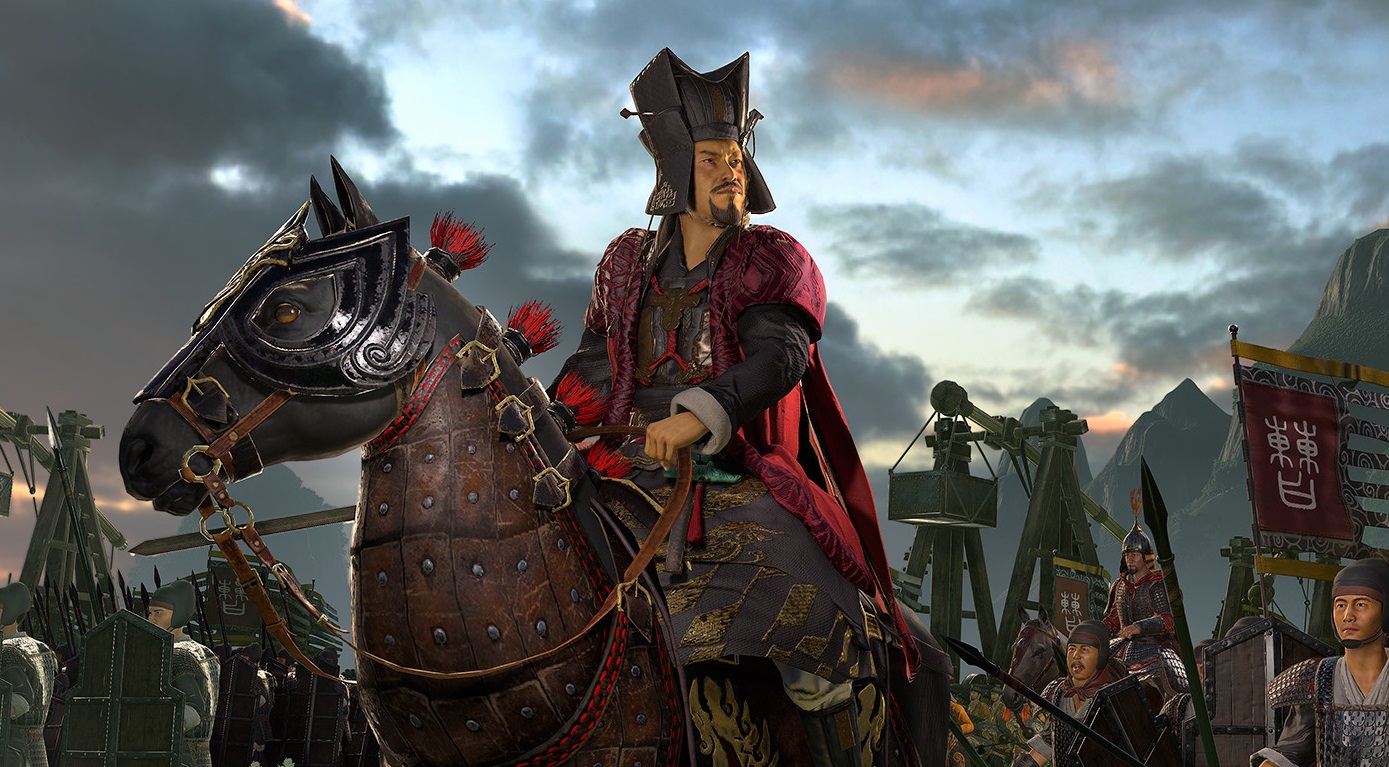In Total War: Three Kingdoms you can actually sell your kingdom for a horse
Or at least a bit of your kingdom.

Total War: Three Kingdoms sees Creative Assembly overhauling its diplomacy system and, by extension, trade, alliances, vassals—really most of the campaign. These systems have developed considerably since the days of the original Shogun: Total War, but they tend to lag behind those found in other 4X and grand strategy games, favouring broad, generic deals and alliances. Not so in Three Kingdoms, however, according to a two-part video series. You can watch both of them below.
At every level, it seems to be more granular. Take negotiation, for instance. Normally, you can try to sweeten a diplomatic deal by throwing in cash and, when approached by another leader, you can throw out a counter-offer. In Three Kingdoms, that’s been replaced by haggling. If you offer a deal to another leader, their evaluation of the deal depends on lots of factors, including what they think of you personally, their diplomatic relationship with your faction and the value placed on what’s being offered.
They might be willing to accept a trade deal, but if they think that it’s especially valuable to you, they’ll try to get more out of you. That’s when you can start offering specific tradable items and resources to make it more tempting, rather than just throwing gold at the problem. It works the other way, too. If you're offering to sell another leader some land and they're eager to make a deal, you can get more out of them. Maybe they've got a nice horse, so you could find that in the list of their possessions and add it to your demands.
The second and final video details alliances and introduces the new alliance type, coalitions. These are soft alliances and can be created with neutral or friendly factions. Any member can invite another warlord to join, and then the coalition votes on whether to accept them or not. There are fewer obligations in coalitions than in military alliances, so if you declare war, it’s considered a private affair, though you’ll still be able to ask other members to join in. It strengthens ties between the members and makes stronger alliances and assistance in war more likely in future.
Previously, non-aggression pacts were what paved the way for proper alliances, and they were arranged with individual factions and came with no obligations or extra options. Coalitions sound a lot more efficient, potentially bolstering your relationship with several factions at once. You can vote to turn it into a military alliance, as well, and those alliances have also been tweaked, so there are more interactions between members across the board.
Diplomacy is one of several significant changes, and you can learn about the rest by reading everything we know about Total War: Three Kingdoms. It's due out on March 7, 2019.
The biggest gaming news, reviews and hardware deals
Keep up to date with the most important stories and the best deals, as picked by the PC Gamer team.

Fraser is the UK online editor and has actually met The Internet in person. With over a decade of experience, he's been around the block a few times, serving as a freelancer, news editor and prolific reviewer. Strategy games have been a 30-year-long obsession, from tiny RTSs to sprawling political sims, and he never turns down the chance to rave about Total War or Crusader Kings. He's also been known to set up shop in the latest MMO and likes to wind down with an endlessly deep, systemic RPG. These days, when he's not editing, he can usually be found writing features that are 1,000 words too long or talking about his dog.

